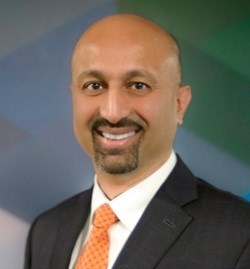Independent Communications Authority of South Africa (Icasa) published its regulations on the use of television white space (TVWS), marking a huge step forward for South Africa in enabling affordable broadband through dynamic spectrum access technologies. The achievement highlights the progress in the adoption of TVWS regulations around the world.
TVWS technologies use unused or unassigned spectrum in the UHF and VHF bands and operate on a secondary basis without causing interference to primary users, such as television broadcasters and broadcast licensees. TVWS technology has long been championed for its strength in providing connectivity over large geographical areas. Many TVWS projects for commercial applications are operational around the world to deliver connectivity to those that are difficult to reach.

Kalpak Gude, president of Dynamic Spectrum Alliance. ©
Africa.com.
Complementary ecosystem to LTE technologies
“TV white space technology provides an alternative but complementary ecosystem to LTE technologies for bridging the digital divide and inexpensively delivering broadband,” said Kalpak Gude, president of the Dynamic Spectrum Alliance. “The two biggest barriers in South Africa, like much of Africa, are accessibility and affordability, so we congratulate the Independent Communications Authority of South Africa for publishing its regulations on the use of TV White Space and it highlights how TVWS can play an important part of a national telecommunications infrastructure. We look forward to Icasa making its type approval process operational and the TVWS database commercially available, as both are necessary steps for commercial deployments to move forward.”
Earlier this year, the Dynamic Spectrum Alliance published its new model rules for TVWS technology, to provide governments, policymakers and regulators with the tools necessary to enable the quick and efficient deployment of TVWS networks to help bridge the digital divide and support the internet of things (IoT).
“The DSA is excited that TVWS regulations are being considered in a number of other countries in Africa including Botswana, Ghana, Kenya, Malawi, Nigeria, Mozambique and Tanzania, and we believe South Africa’s actions will spur more regulators in the region and around the world to move rapidly,” added Gude.
Establishing of regulatory frameworks
Icasa’s announcement comes just 10 months after it co-hosted the DSA Global Summit 2017 in Cape Town, South Africa. During the conference, Pakamile Kayalethu Pongwana, CEO of Icasa, gave a keynote address and joined a panel to discuss the establishing of regulatory frameworks for enabling investment in infrastructure, a panel which proved beneficial for South Africa in addressing the solutions needed to bridge the digital divide.
This year’s DSA Global Summit will be held in Europe for the first time, taking place 1-3 May in London, United Kingdom. The Global Summit will bring together leading regulators and policymakers to discuss developments in dynamic spectrum sharing technologies including TVWS, Citizens Band Radio Service (CBRS), and unlicensed opportunities in 6 GHz and mmW spectrum. For more information about the Dynamic Spectrum Alliance, or its Annual Global Summit, please click here.




































